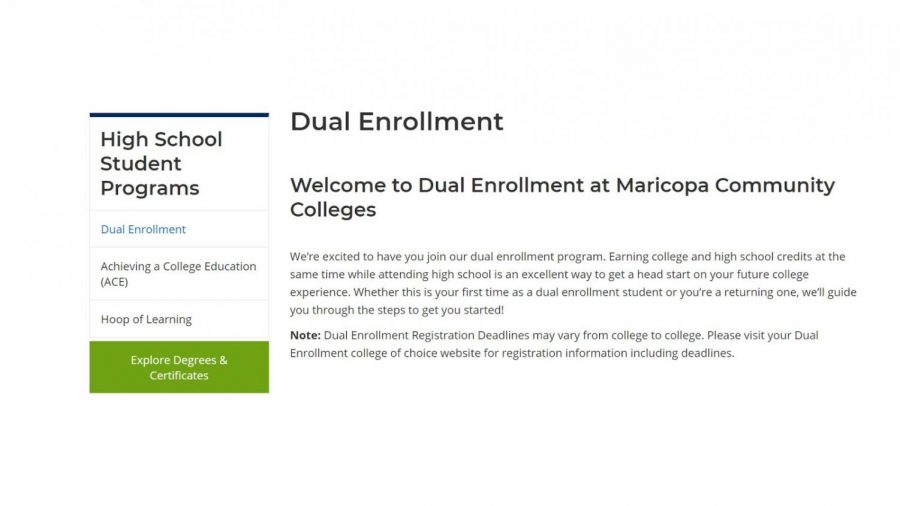Should Students Take Dual Enrollment Courses?
Horizon Honors offers many different dual enrollment courses for students to take throughout high school. But are they worth taking?
Horizon Students take their dual enrollment courses through Maricopa Community Colleges.
January 18, 2021
Dual enrollment classes allow students to work towards a high school and a college credit at the same time. They are usually more rigorous than grade-level courses and, similarly to AP courses, students often try to take them in order to get a head start in college. However, there are many aspects of dual enrollment courses that students don’t often think about, which could influence their decision of whether or not to take them.
Horizon Honors works with Maricopa County Community Colleges to provide its students with dual enrollment courses, and gives many reasons for students to take these classes. Students are able to complete two classes in the span of one year, and while only doing the work of one. If students do enough dual enrollment courses, they can build up college credits before graduating high school, and have the potential to skip their first year of college. Dual enrollment courses also give students a more accurate representation of what some college courses might be like, and can help to prepare students for a higher amount of work and higher expectations.
However, while dual enrollment classes can prove to be incredibly useful for some students, they can also have some downsides. Since dual enrollment classes, like those through Maricopa County Community Colleges, work to prepare students for college classes, they often have a heavier workload than grade-level courses. A student taking multiple dual enrollment classes could easily find themselves overwhelmed. Students also need to remember that the grade they get for a dual enrollment course counts for both their high school and college grades, meaning that if they don’t do well in the class, it could limit their options for future classes in college.
Another concern with dual enrollment courses is whether or not taking the course will actually benefit the student. According to Study Point, students often change their major at least once during college, so a credit in one class may ultimately prove useless. There’s also another issue—not all colleges accept all dual enrollment credits, so students that are unsure of what college they want to attend could end up wasting both time and money if they take a dual enrollment class that isn’t accepted by their future college. Students could try taking a higher number of dual enrollment courses in high school, in order to get credits for multiple possible majors, but that comes at the cost of a higher workload (as previously mentioned), as well as lots of money over the years.
Ultimately, whether or not it’s worth taking dual enrollment classes depends on what colleges and paths students are planning to take, and how willing they are to accept extra work and potential risks. A student may come out of high school with their entire first year of college done, but they also might waste lots of time and money with no real benefit. Any students planning on taking dual enrollment courses should think about these factors for themselves, and research their unique situation beforehand.









